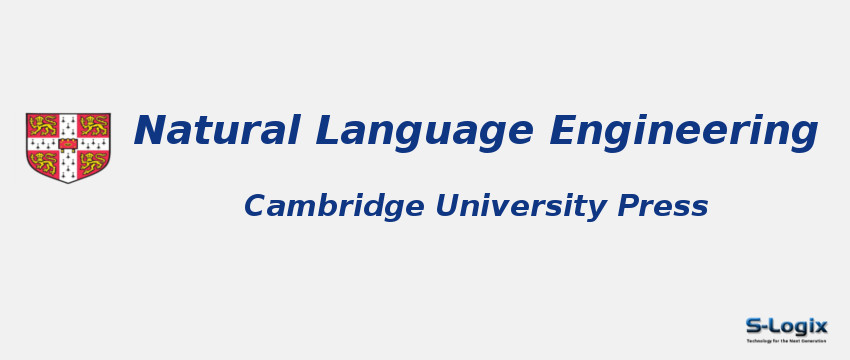Journal Home: Journal Homepage
Editor-in-Chief: Ruslan Mitkov
Print ISSN: 1351-3249
Electronic ISSN: 1469-8110
Abstracting and Indexing: Science Citation Index Expanded, Scopus.
Imapct Factor 2024: 1.9
Subject Area and Category: Computer Sciences
Publication Frequency: Quarterly
H Index: 66
Q1: Linguistics and Language
Q2:
Q3:
Q4:
Cite Score: 5.9
SNIP: 1.660
Journal Rank(SJR): 0.639
Latest Articles: Latest Articles in Natural Language Engineering
Guidelines for Authors: Natural Language Engineering Author Guidelines
Paper Submissions: Paper Submissions in Natural Language Engineering
Publisher: Cambridge University Press
Country: United Kingdom
